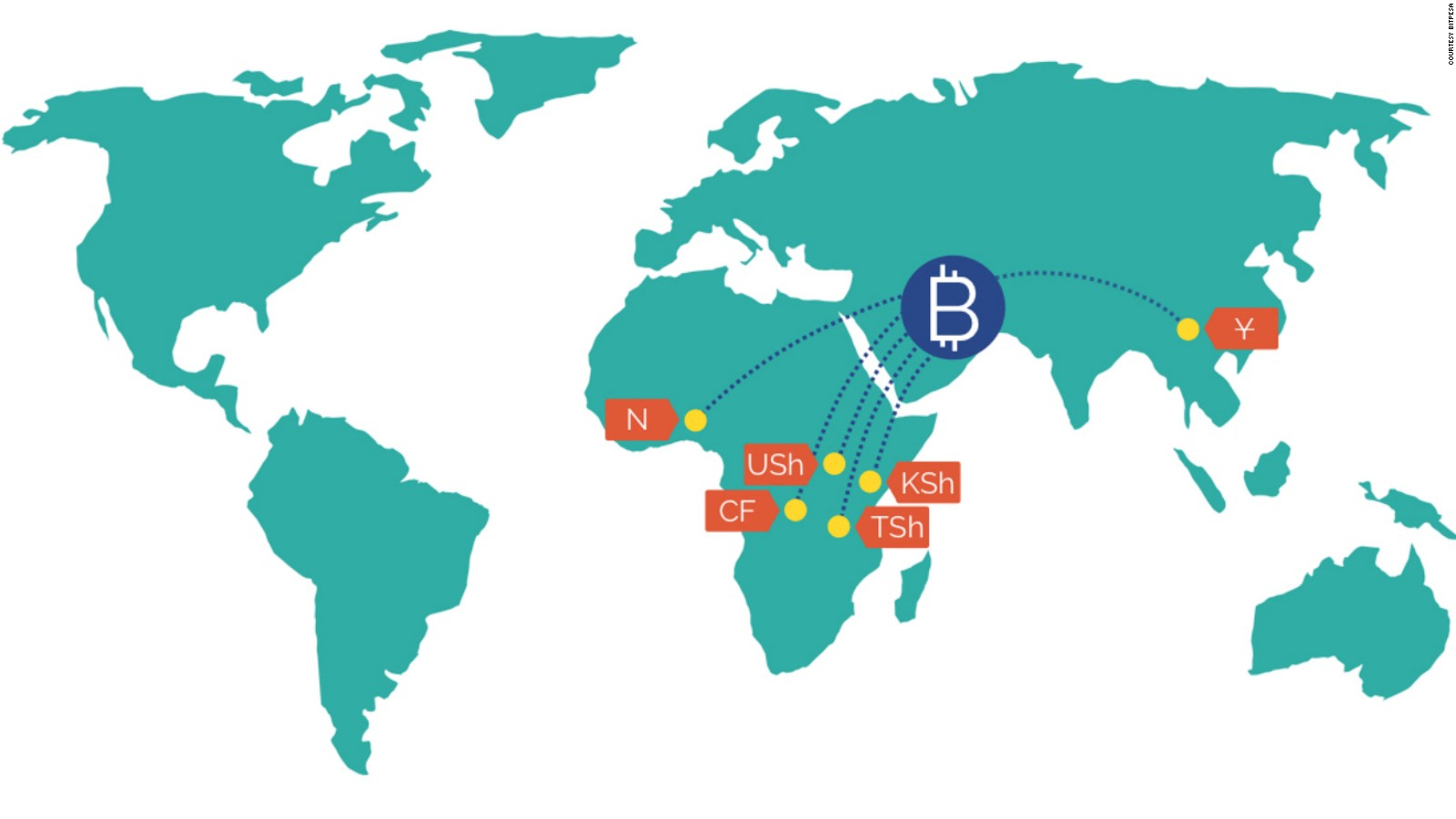Now, a Kenyan start up is bringing Africa closer to its biggest investor, China, by letting companies on the continent send payments to the Asian nation which are traded in Bitcoin.
Using BitPesa's website, users in Kenya, Uganda, Tanzania, Nigeria and the Democratic Republic of Congo can send money directly to bank accounts in China.It's fast and could cut conventional money transfer costs by up to 60%, according to the company.
Until now African companies have had limited options for paying their Chinese suppliers in a swift and affordable way, says CEO Elizabeth Rossiello.
More than 70% of transactions are made through independent money transfer operators -- who offer an often sluggish but cheaper service on average than post offices, banks or other conventional methods, according to a 2016 report."Some companies are even giving cash to a middleman who physically gets on a plane. There had to be a better solution."

The service is available in Nigeria, Kenya, Tanzania, Uganda and DRC and the company hopes to keep expanding
How it works
Take a solar power start up importing their panels from China, for example. They can register via BitPesa's website and request to make a transfer. BitPesa then calculates the transaction fee, based on the amount and currencies involved.
The fee is agreed and the user pays with mobile money or by bank transfer.
"It arrives, depending on where you are, just a few minutes or hours later in the Chinese bank account," Rossiello says.
"We request your ID, your address, your date of birth (at registration). We check them against the same databases the banks use," she adds, highlighting the site's emphasis on security.
BitPesa takes care of the Bitcoin trading at the back-end, and for the user the experience is much like sending money by any other independent money transfer service.
Raised $4 million
Established in Kenya in 2013, BitPesa -- which has raised $4 million in capital -- is not the only operator trading with Bitcoin in Africa, with others in this sector mostly based in South Africa.
But its China scheme, which launched this month and for the first time allows users to make online payments to clients in Asia, give the company a unique selling point.

Some shops and pubs, such as this one in Australia, accept Bitcoin.
With trade between China and Africa estimated to have hit $220 billion in 2016, as Chinese companies invest heavily in small businesses across the continent, it's a smart move.Already, the company has seen interest from large multinationals.
"We are very excited by the initial uptake," says Rossiello, who pays her international staff in Bitcoin too.
International money transfers can be costly and often go via payment corridors that zigzag the globe before reaching their destination -- an inefficient and archaic method, says Rossiello.
"Why not have [money moving in] direct lines instead of spaghetti bowls?"
BitPesa hopes to keep expanding, proving that Bitcoin should not be feared but embraced as a tool which connects the continent.
Not everyone is so easily persuaded, with some firms still wary of Bitcoin, Rossiello adds.
"You have to do it totally digitally. You can't walk into the bank. You can't pay in cash. It's a behavioral change."
The rise of 'digital cash'
Created in 2009 by an unknown person with the alias Satoshi Nakamoto, Bitcoin has seen increased interest in recent years with some experts saying it could have a vast impact on the future of financial technology.There are different ways of trading the currency, and while some use it to shop online, others keep it in an online wallet in the hope of seeing the value increase.

People attend a Bitcoin conference in New York.
One Bitcoin had an estimated value of $790 in mid December 2016, and around 180 million Bitcoins have been traded globally since the currency launched -- a number which has nearly doubled over the past year, according to industry platform Blockchain Info. "There's been a strong increase in the number of transactions," says Eddy Travia, founder of the Bitcoin Institute and CEO of Coinsilium, who acts as an adviser to companies that use Bitcoin."It's really a form of digital cash."
The currency is anchored in a so-called blockchain -- a way of digitally tracking the transactions to avoid the money being used more than once. Payment companies that trade with Bitcoin tend to fall under the same regulations as conventional money transfer services, Travia explains.
Source: Could a digital currency bring Africa closer to China?
No comments:
Post a Comment